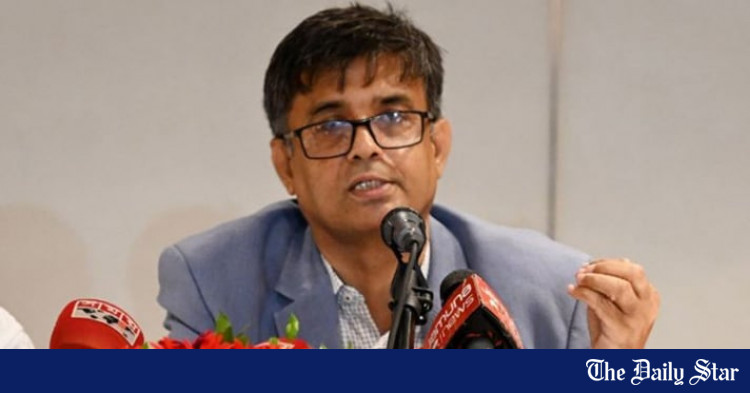- Copy to clipboard
- Thread starter
- #31

Polls to take place by June 30, 2026
The next parliamentary polls are expected to take place by June 30, 2026, said Shafiqul Alam, the press secretary to the chief adviser.
Polls to take place by June 30, 2026
Says CA’s press secretary

Photo: BSS/File
The next parliamentary polls are expected to take place by June 30, 2026, said Shafiqul Alam, the press secretary to the chief adviser.
Chief Adviser Muhammad Yunus has given a clear-cut roadmap about the election, he said at a press conference yesterday when asked about the BNP's demand for a definite roadmap for the next general elections.
It is the Election Commission's job to announce the election schedule and the government's role is to facilitate the EC, said Azad Majumdar, deputy press secretary to the chief adviser.
About enforced disappearances, Alam said all involved, including political parties and members of law enforcement agencies, will be brought to justice.
When asked how the Awami League leaders and members of law enforcement agencies left the country after the ouster of Sheikh Hasina on August 5, Alam said that the government is reviewing the matter.
The government has no concrete information on the whereabouts of the AL general secretary Obaidul Quader, he said.
The University Grants Commission will be renamed as the University Commission with the view to modernising it and maintaining quality in tertiary education, Alam said.
The government has plans for a significant upgrade to technical and vocational education, he said, while acknowledging that the areas are currently lagging behind.
There would be training initiatives for teachers in private schools and colleges, he said, while noting that private educators often lack access to training opportunities compared with their counterparts in public institutions.
"Efforts will be made to make these textbooks more contemporary," he said.
About forming a reform commission for education, he said that instead of forming a reform commission for education immediately, the government is focusing on identifying areas for rapid intervention to bring qualitative changes to the education sector.
There are plans to increase the budget for the education sector. "Our investment in education is very low -- we need to increase it."
Says CA’s press secretary
Photo: BSS/File
The next parliamentary polls are expected to take place by June 30, 2026, said Shafiqul Alam, the press secretary to the chief adviser.
Chief Adviser Muhammad Yunus has given a clear-cut roadmap about the election, he said at a press conference yesterday when asked about the BNP's demand for a definite roadmap for the next general elections.
It is the Election Commission's job to announce the election schedule and the government's role is to facilitate the EC, said Azad Majumdar, deputy press secretary to the chief adviser.
About enforced disappearances, Alam said all involved, including political parties and members of law enforcement agencies, will be brought to justice.
When asked how the Awami League leaders and members of law enforcement agencies left the country after the ouster of Sheikh Hasina on August 5, Alam said that the government is reviewing the matter.
The government has no concrete information on the whereabouts of the AL general secretary Obaidul Quader, he said.
The University Grants Commission will be renamed as the University Commission with the view to modernising it and maintaining quality in tertiary education, Alam said.
The government has plans for a significant upgrade to technical and vocational education, he said, while acknowledging that the areas are currently lagging behind.
There would be training initiatives for teachers in private schools and colleges, he said, while noting that private educators often lack access to training opportunities compared with their counterparts in public institutions.
"Efforts will be made to make these textbooks more contemporary," he said.
About forming a reform commission for education, he said that instead of forming a reform commission for education immediately, the government is focusing on identifying areas for rapid intervention to bring qualitative changes to the education sector.
There are plans to increase the budget for the education sector. "Our investment in education is very low -- we need to increase it."










